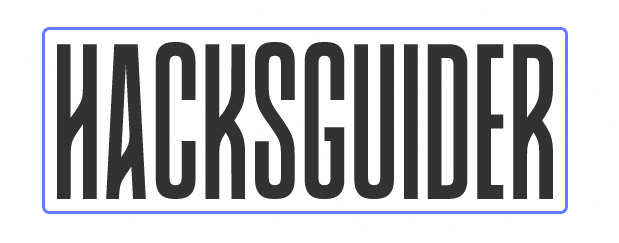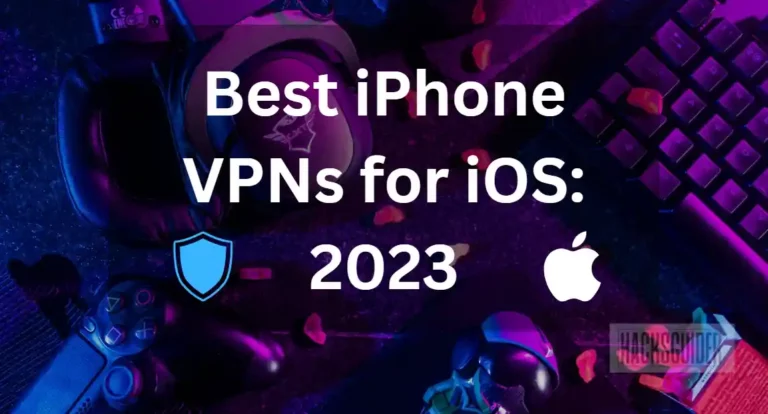
Best iPhone VPNs for iOS in 2023: Tested and Verified
Best iPhone VPNs for iOS in 2023: Safe VPNs We review VPNs and other products independently. However, if you buy
We review VPNs and other products independently. However, if you buy with our links, we may earn a small commission to run tests and services.
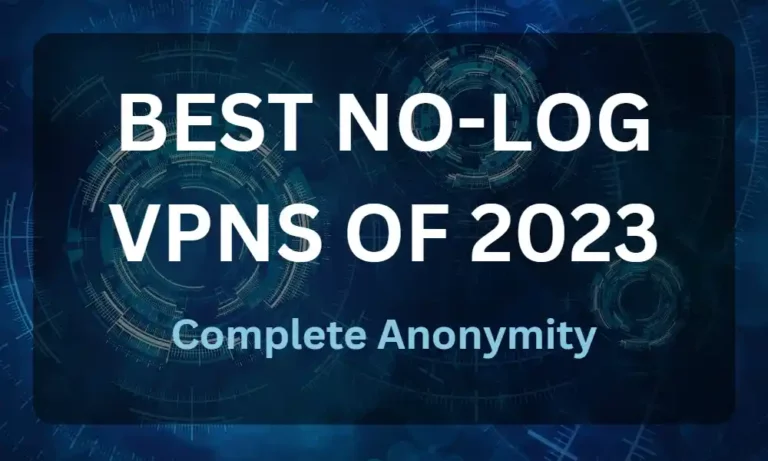
In the vast world of VPNs, you’ll find many VPNs that claim to be “no-logs” providers, promising to protect your privacy and keep your data safe. However, as with many things in life, not all VPNs are created equal. There are many VPNs that still collect data even after mentioning no-logs, which can lead to a false sense of security for their users. In this comprehensive review, we’ll be shedding light on the VPNs that truly live up to the no-logs claim and give you the privacy you deserve.
It’s no secret that some VPN providers take advantage of the lack of proper parameters to check whether their no-logs claims are genuine. This lack of transparency can result in users unknowingly compromising their privacy by choosing a VPN that doesn’t fully protect their data. There are no guidelines or proper tests to guarantee a VPN’s No-logs policy. Every VPN has its own definition of no logs VPN and this leads to misuse of the trust of users.
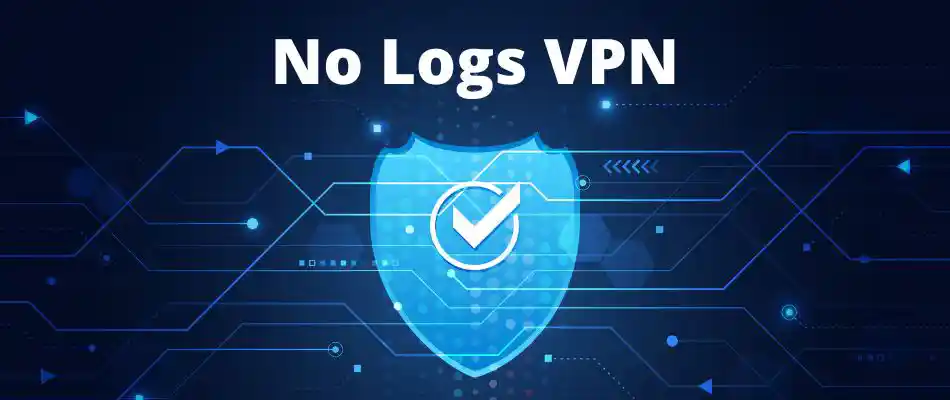
Before we dive into our top picks, let’s briefly discuss what a no-logs VPN is and why it’s important. A no-logs VPN is a service that doesn’t record or store any information about your online activities, providing an added layer of privacy and security. This is crucial in a world where digital threats and data breaches are becoming increasingly common. Why would we need a VPN to protect our privacy, if the VPN itself exploits our data?
To bring you the most accurate and reliable information, we didn’t just rely on the VPN providers’ claims. As I mentioned, there are no ways to guarantee a no-logs VPN, however, there are ways for a VPN to prove them truly no-logs. Regular independent audits, a previous history where the authorities could not find any data, and no past record of malpractices, etc. These are the traits that prove good no-logs VPN services.
Our team conducted rigorous tests over the course of a week, evaluating various aspects of each VPN, including their logging policies, privacy features, and overall performance. After extensive testing, we’ve picked the top no-logs VPN providers for our readers.
Specifications:
When it comes to the best VPNs, Nord VPN usually rules at the top. NordVPN is currently the market leader in the VPN industry followed by ExpressVPN.
NordVPN is known for its extensive server network, impressive features, and commitment to user privacy, which is demonstrated through its strict no-logs policy.
NordVPN’s no-logs policy has been verified and audited by third-party companies, ensuring that the provider does not store any user activity or personal information. This policy guarantees users’ privacy and prevents any misuse of their data. NordVPN has undergone multiple third-party audits, passing all of them and proving its dedication to user privacy.
Bug bounty program on the HackerOne platform. This program was started after the NordVPN leak incident. Now Nord pays huge bounties and rewards for people who report bugs and errors. This is a great initiative by the company to secure privacy and safeguard the system.
Although NordVPN collects basic user information like email and payment details, this information is only shared with third-party support centers and payment companies. To further enhance privacy, NordVPN also accepts cryptocurrency payments.
Pro Tip: Create a temporary email and pay through cryptocurrency for completely anonymous payments.
One aspect of NordVPN’s no-logs policy is the use of RAM-only servers, which do not have any storage capacity to record user data. This feature prevents NordVPN from logging any user behavior on those servers, providing additional privacy protection. NordVPN has implemented RAM-only servers since 2022 to offer even more privacy to its users.
NordVPN employs technology that stores necessary information for only 15 minutes after disconnection, which includes incoming and outgoing IP addresses, connection date and duration, amount of data transferred, and VPN servers used. This limited storage period ensures that user data is not logged long-term, maintaining privacy while still allowing for faster connection speeds by identifying server loads and connecting to nearby servers.
As part of its commitment to privacy, NordVPN operates under the jurisdiction of Panama, a privacy-friendly country that does not have any specific data retention laws. Panama is not part of any international surveillance alliances like the 5 Eyes or 14 Eyes, which further supports NordVPN’s no-logs policy.
In conclusion, NordVPN’s commitment to user privacy is evident through its strict no-logs policy, use of RAM-only servers, limited data storage, and privacy-friendly jurisdiction. These factors, combined with its extensive server network and impressive features, make NordVPN one of the best no-logs VPN providers on the market.
Explore the complete review of NordVPN here.
Specifications:
ExpressVPN has long been a favorite among privacy enthusiasts, and for good reason. This well-established premium VPN provider has consistently demonstrated its commitment to user privacy and security. With a strict no-logs policy, diskless servers, and regular external audits, ExpressVPN has earned its reputation as a reliable and trustworthy VPN service.
Privacy is the cornerstone of any VPN, and ExpressVPN takes it seriously. Their no-logs policy ensures that your browsing data and information are automatically wiped out within 15 minutes of disconnecting from the VPN. Additionally, ExpressVPN uses RAM-only or diskless servers, which means that even if a server is compromised, it cannot store any user data due to the lack of storage.
ExpressVPN’s privacy policy is transparent and clearly states what information is collected. While some personal data and usage statistics are collected, none of it can be traced back to individual users.
This is because the information is collected in aggregated anonymous data that even ExpressVPN can’t trace back. Furthermore, ExpressVPN does not collect data about users’ browsing and internet activity while connected to the VPN. This data includes some crash and connection analytics to find disruptions and glitches in the network. This is to enhance the user’s experience.
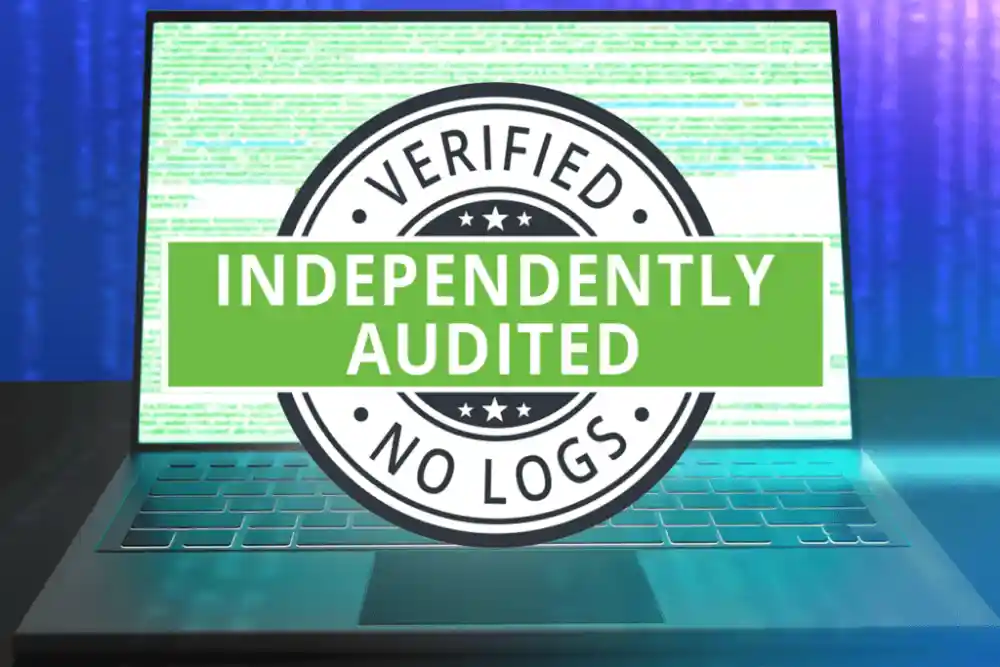
One of the standout features of ExpressVPN’s commitment to privacy is its regular external audits by reputable cybersecurity firms. To date, ExpressVPN has published 13 external audits of their products, including assessments of their no-logs policy, VPN protocol, and privacy policy compliance. These audits, conducted by cybersecurity firm Cure53, provide users with added confidence in ExpressVPN’s dedication to privacy and security.
ExpressVPN offers a range of secure protocols, including their own in-house developed Lightway protocol, which is designed for speed, reliability, and security. The service also supports OpenVPN, IKEv2, and other protocols, providing users with plenty of options. With AES-256 encryption and Perfect Forward Secrecy, ExpressVPN ensures that your online activity is protected by military-grade encryption.
With over 3000 servers in 94 countries, ExpressVPN boasts a vast network that covers all major regions of the world. This wide server network allows users to connect to their desired location and enjoy a fast, secure internet connection. Moreover, their Smart Location feature automatically selects the fastest and most secure server for the user, making it easy for those who are unsure which server location to choose.
Jurisdiction is a crucial factor when choosing a VPN provider, and ExpressVPN is based in the privacy-friendly British Virgin Islands. This means that they are not subject to mandatory data retention laws and are not legally required to hand over customer data. ExpressVPN’s no-logs policy has even been put to the test in real-world scenarios, such as when Turkish authorities seized their servers in 2017 and found no user data.
In 2021, ExpressVPN was acquired by Kape Technologies, which also owns PIA VPN, CyberGhost VPN, and Zenmate VPN. The company has since transformed itself into a privacy-focused entity, putting its past as an adware company behind it. Since 2016, the company was never mentioned in any gray area, indicating the change for good.
Device Compatibility- ExpressVPN is compatible with a wide range of devices and operating systems, including Windows, macOS, iOS, Android, Linux, and routers. Their customer support is top-notch, offering extensive guides, email support, and live chat assistance.
Price-wise, ExpressVPN offers three plans: monthly, 6-month, and yearly. While longer commitments come with lower prices, it’s recommended to start with the monthly plan, which costs $12.95/mo. If you’re not satisfied with the service, you can cancel and get your money back.
In Jan 2017, Turkish Authorities seized the ExpressVPN servers. Due to the murder of the Russian Ambassador to Turkey, the Turkish authorities claimed that ExpressVPN was used and thus should provide the information. ExpressVPN clearly stated to not possess any type of data of any user or any log activities. The authorities then seized the servers to check themselves, and as ExpressVPN claimed, they did not find any useful information or logs.
In conclusion, ExpressVPN’s commitment to privacy, extensive server network, and strong encryption makes it one of the best no-log VPNs on the market. With a transparent privacy policy and regular external audits, you can trust ExpressVPN to keep your online activities secure and private.
Explore the complete review of ExpressVPN here.
Specifications:
Private Internet Access (PIA), is a top VPN provider known for its large server network, no-logs policy, and commitment to user privacy. With servers in 84 countries, PIA provides a variety of options for users to choose from when selecting a location for their VPN connection. With an estimated 17,600+ servers, PIA has one of the largest collections of servers among VPN providers.
Private Internet Access has adopted diskless or RAM-only servers, which are incapable of storing user data. This move is aimed at further enhancing user privacy. In 2016, when authorities in the USA and Russia seized PIA servers, no user data was found, showcasing their commitment to privacy. This incident proved that not all VPNs claim false lies like HMA.
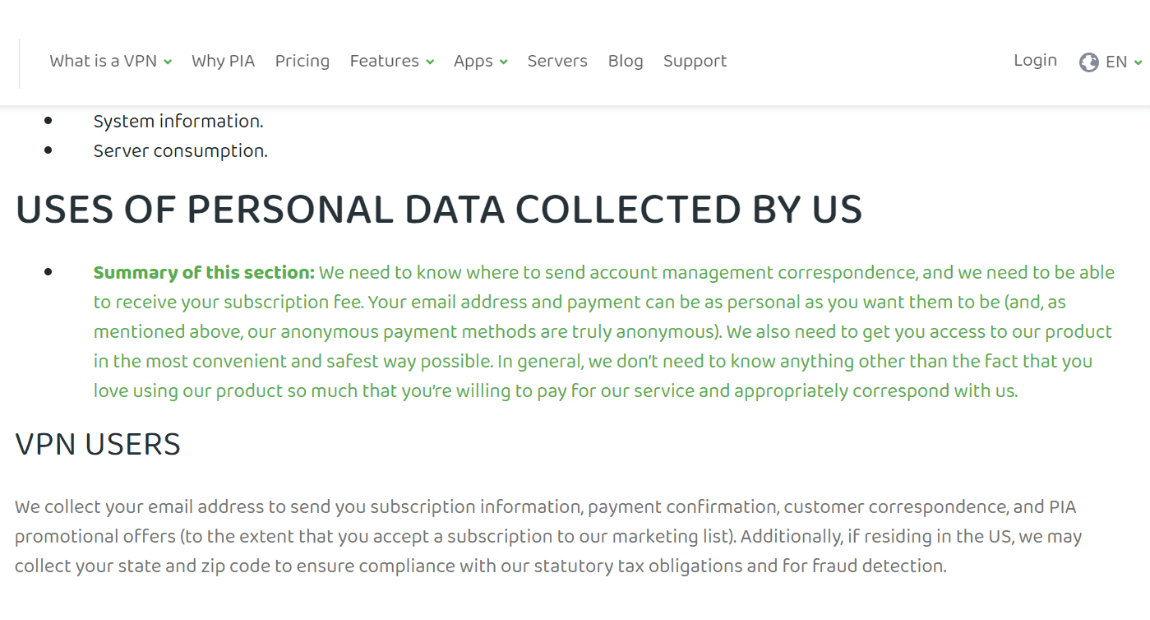
PIA’s privacy policy is built on the principle of “Your Privacy is our Policy.” The company does not collect, store, or sell any user activity. They also accept anonymous payments through cryptocurrencies. While some non-identifying data is collected to ensure the proper functioning of the system, it is not linked to user accounts or activities. This data is completely anonymized.
In June 2022, PIA underwent a third-party audit by Deloitte Audit Romania, which verified that the VPN provider did not store or track user data or activities. This further strengthens PIA’s reputation as a trustworthy company dedicated to user privacy.
One concern about PIA was its jurisdiction, as it is based in the USA, a founding member of the 5-Eyes alliance. However, when the USA and Russia seized the servers and were left empty-handed, PIA won the trust of its users. The company claims that since there are no data retention laws, they do not store any user data. They have also upgraded to RAM-only servers to address privacy concerns.
Private Internet Access was acquired by Kape Technologies in November 2019, a company that owns other VPN providers like ExpressVPN and CyberGhost. Although Kape Technologies has faced some controversies in the past, PIA has stated that it will not share its infrastructure with other Kape companies, maintaining its independence.
PIA offers three subscription plans: monthly, yearly, and a 3-year plan. The monthly subscription costs $11.99/mo, the 6-month plan is $7.50/mo, and the 3-year plan is only $2.19/mo. All plans come with a 30-day money-back guarantee, allowing users to test the service and ensure it meets their needs.
Read the detailed review of PIA here.
Specifications:
Surfshark has over 3,200 servers in more than 100 countries, providing an extensive network for users to choose from. However, it is important to note that a larger number of servers can improve accessibility but not necessarily privacy. We will examine Surfshark’s features and policies to understand why it is a top choice for those seeking a no-logs VPN.
Surfshark has upgraded all its servers to RAM-only or diskless servers, which is beneficial for its no-logs policy. RAM-only servers do not have storage or disks to store information, which is crucial in maintaining user privacy, even in the event of server seizures.
Surfshark follows a strict no-logs policy, meaning it does not store any user activity or personal information not required for proper functioning. Some personal information, such as name and payment status, is necessary for account maintenance, but the company ensures that none of this information is sold or shared with third parties.
Surfshark’s privacy policy is transparent and does not attempt to hide any information. One concern is that the company outsources certain tasks, such as customer support and payment processing, to partners. Although Surfshark claims these partners maintain full privacy, it is difficult to be completely certain. However, general logs are deleted within 15 minutes according to the no-logs policy.
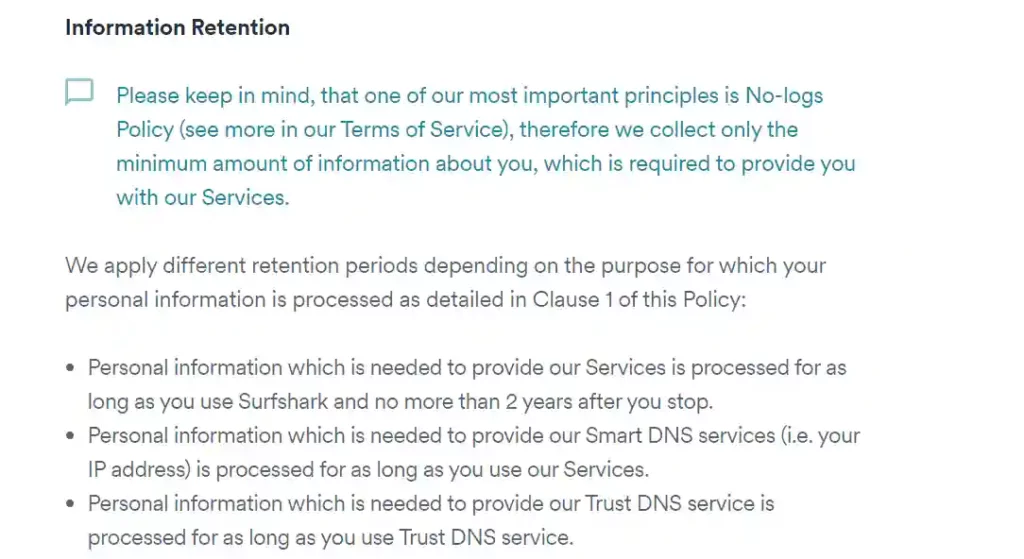
Like other VPNs, Surfshark collects aggregate data for crash reports, successful connections, diagnostics, etc., to improve its services. This data is not connected to specific accounts and cannot be traced back to users. Users can also request the company to remove all possible details to minimize data retention.
Surfshark maintains a warrant canary, reporting any warrants or requests by authorities. As of 2023, no requests or warrants have been issued to Surfshark, and even if they were, the company wouldn’t have any user data to share due to their no-logs policy.
Surfshark underwent an independent audit for its no-logs policy in January 2023. The audit was conducted by Deloitte, one of the largest auditing companies, and Surfshark passed the audit, verifying its no-logs policy. The company also went through audits in 2018 and 2021, but those were infrastructure audits, which were not as comprehensive.
In 2021, the company shifted its jurisdiction to the Netherlands, which comes under the privacy laws of the EU. The Netherlands is part of the 14 Eyes intelligence-sharing alliance. Despite this move, Surfshark claims that there are no data retention laws in the Netherlands, allowing them to maintain their no-logs policy.
Surfshark’s parent company is Surfshark B.V., which was formed when the company shifted to the Netherlands in 2021. In the same year, Surfshark merged with NordVPN, a popular VPN provider owned by Nord Security. The newly created company, Cyberspace, is based in the Netherlands. Surfshark and NordVPN maintain that they only share knowledge and research, keeping their infrastructures separate.
Surfshark VPN is the most affordable premium VPN provider compared to the features offered by the VPN provider. While the monthly plan at $12.95 is expensive, the 2-year plan only costs $2.49/mo. While comparing with the level of service and features offered, Surfshark leads the race in affordability.
Read the complete Surfshark VPN review here.
Specifications:
CyberGhost VPN is a popular choice for users seeking online privacy and security. With over 9,771 servers in 117 locations across 91 countries, CyberGhost has the second-highest number of servers among VPN providers. This expansive server network enhances accessibility, but privacy is our main focus.
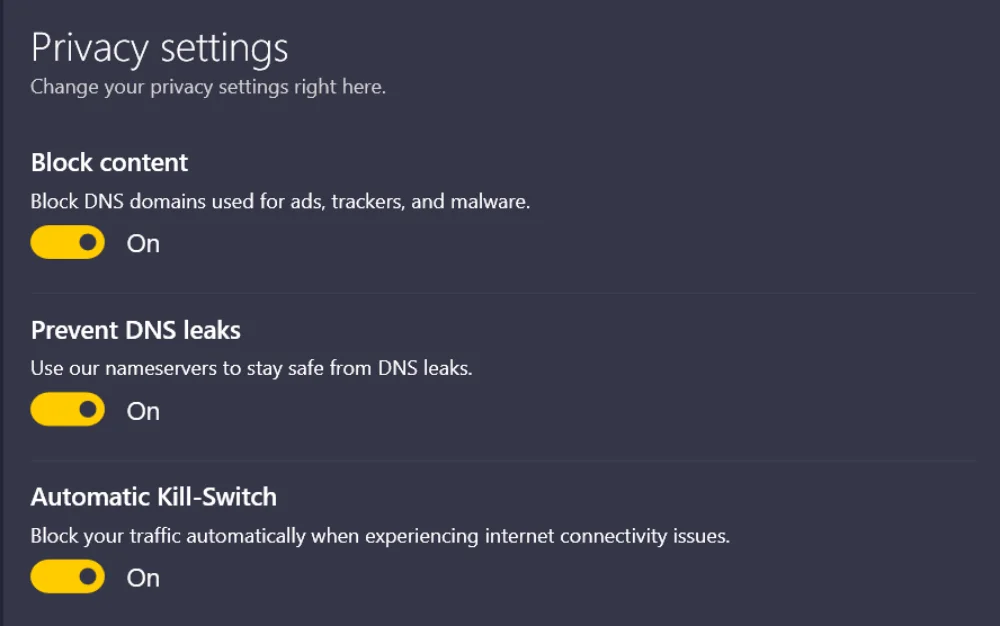
To enhance privacy, CyberGhost has implemented RAM-only or diskless servers, which do not store any user data. This helps maintain the no-logs policy and ensures that even if third parties access the servers, they will not find any valuable information. It is important to note that CyberGhost rents its servers from third parties, which is why it developed NoSpy servers owned and managed by the company.
NoSpy servers, located in Romania and housed within CyberGhost’s headquarters, offer increased privacy and security. The company maintains these servers directly, utilizing better hardware and monitoring by their staff. They also boast higher bandwidth compared to regular servers.
CyberGhost follows a strict no-logs policy, meaning they do not collect any connection or usage data from users. However, some personal information is required for account management, such as email and payment status. This information is not shared with third parties, and payment information is not stored.
The privacy policy outlines that CyberGhost collects anonymized website usage information, transaction information, and some personal information unrelated to user accounts. They also maintain a quarterly transparency report, detailing any warrants or requests by authorities. According to the report, no data has been shared due to the no-logs policy.
In December 2022, CyberGhost underwent an independent audit by Deloitte, verifying their no-logs policy. This third-party audit provides additional assurance that the company is committed to user privacy and upholding its no-logs promise.
Jurisdiction plays a significant role in a VPN’s privacy policy, as the company must abide by the laws of the country in which they operate. Fortunately, CyberGhost falls under the jurisdiction of Romania, which is not part of any intelligence-sharing agreements like the 14 Eyes. Although Romania is part of the EU, it did not adopt the EU’s Data Retention Policy, offering a more privacy-friendly environment for VPN users.
Well, this is the third Kape VPN that has been on this list. Looks like Kape really has cleaned its past and is surely moving towards a safe and secure future, at least that’s all we can hope for.
CyberGhost was founded in 2011 under CyberGhost S.A. in Bucharest, Romania. In 2017, it was acquired by Crossrider, now known as Kape Technologies, which also owns ExpressVPN, Private Internet Access, and ZenMate. Despite its history with adware, Kape Technologies has since shifted its focus entirely to online privacy and security.
CyberGhost has clarified that they do not share their infrastructure with other Kape Technologies companies and operate independently. Privacy is of utmost importance, so users should always scrutinize the details of any VPN service they consider.
CyberGhost VPN also offers three plans, the monthly being the costliest at $12.99/mo. The two-year plan only comes for $2.19/mo, which is one of the best VPN deals in the market. If you are a streamer or gamer, this is the best VPN you can get at this price. If you only want privacy, you may look into PIA again.
Read the detailed review of CyberGhost here.
Specifications:
ProtonVPN stands out for its transparency, with 1925 servers across 67 countries and a total bandwidth capacity of 2251 Gbps at the time of writing. One of the key features of ProtonVPN is its Secure Core servers, which act as multi-hop servers to provide additional protection against data loss and tracking in restrictive environments.
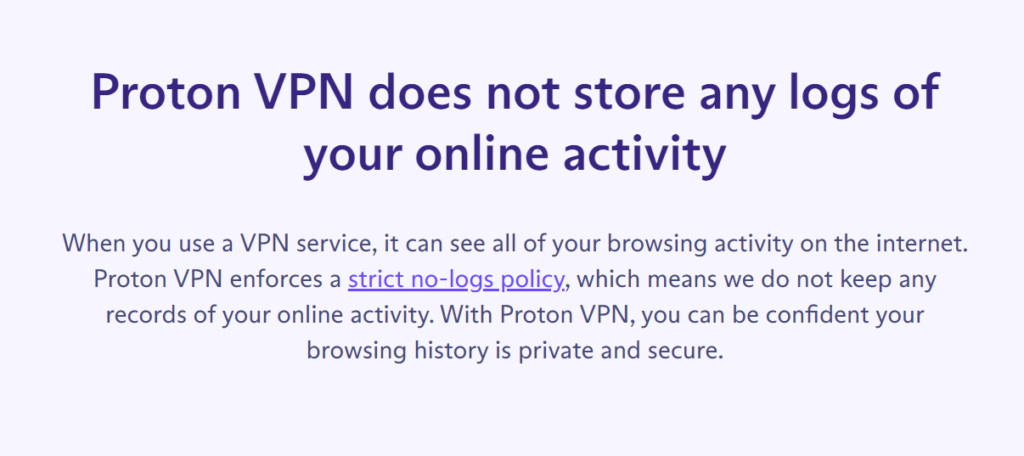
The company follows a strict no-logs policy, ensuring that no user activity or data is stored. This makes ProtonVPN a highly reliable choice for privacy-conscious users. While ProtonVPN has not yet implemented RAM-only servers, the no-logs policy and Secure Core servers work together to ensure data safety.
ProtonVPN collects minimal personal data, such as email addresses and payment information, which is standard for most VPN providers. The company also offers anonymous payment options like Bitcoin and cash payments for users seeking complete anonymity.
ProtonVPN has undergone a third-party audit by Securitum, a leading European security auditing firm, to verify its no-logs policy claims. The audit, conducted in April 2022, confirmed that ProtonVPN does not collect or store personal data.
The company is registered and has jurisdiction in Switzerland, a privacy-friendly nation that is not part of any intelligence-sharing agreements. Swiss law also requires user notification before any monitoring can take place, and ProtonVPN is exempt from data retention laws, allowing the company to legally maintain its no-logs policy.
ProtonVPN is owned by Proton AG, a Switzerland-based company focused on privacy and security products. The company was founded by a group of scientists who met at CERN (the European Center for Nuclear Research) and initially created ProtonMail, the largest encrypted email service. Following the success of ProtonMail in 2014, Proton AG launched other privacy-focused products, including ProtonVPN, Proton Calendar, and Proton Drive.
Ownership of Proton AG is primarily held by its employees, with the majority of shares in their hands. The remaining shares are owned by a non-profit organization and some users. This unique ownership structure ensures that the company’s commitment to privacy remains uncompromised, as no corporate entity can force policy changes.
Proton AG has built a solid reputation for protecting user privacy across all its products. Both Proton Drive and Proton Calendar are encrypted, making them secure options for users concerned about data protection. With over 70 million users and businesses using Proton AG’s services, the company’s dedication to privacy and security is evident in the trust placed in its products.
Read the detailed review of Proton VPN here.
Specifications:
Atlas VPN offers more than just a reasonable level of privacy with its no-logs policy, ensuring that your browsing activity, history, and other sensitive data are not recorded. While it is based in the USA, a country with a poor reputation for privacy and a member of the Five Eyes intelligence alliance, the no-logs policy helps mitigate some of the jurisdictional concerns.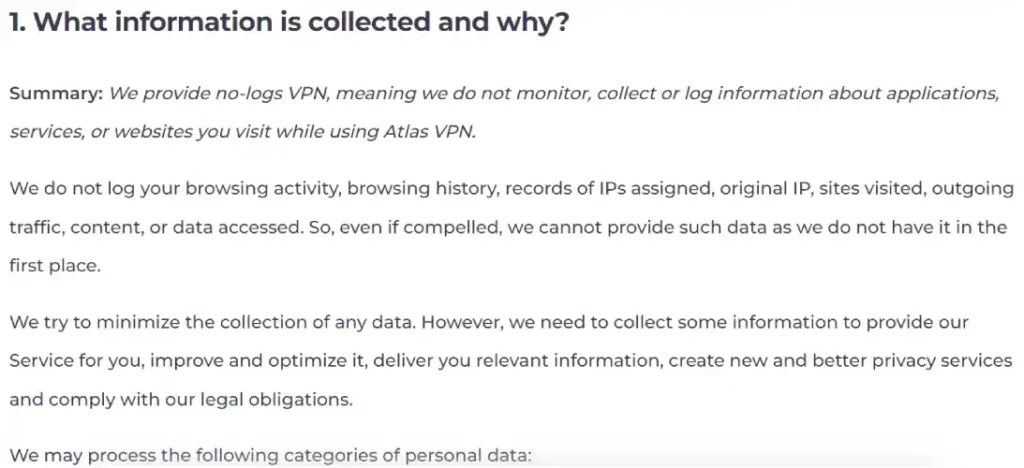
Atlas VPN has undergone three external audits, including an audit of its Windows application by MDSec and an audit of its iOS application by VerSprite. These third-party audits help to verify the company’s claims and security practices, and Atlas VPN has taken steps to address the recommendations provided by the auditors.
The company’s parent organization, Nord Security, is the same company that owns NordVPN, one of the industry’s leading VPN providers. This acquisition has led to increased transparency, as Atlas VPN now shares employee names and other operational details. While there may be concerns about a few large companies dominating the VPN market, Nord Security’s commitment to privacy and security may provide some reassurance for Atlas VPN users.
Atlas VPN appears to be a decent choice for users looking for a VPN with a no-logs policy and third-party audits, despite its less-than-ideal jurisdiction. The company has taken steps to improve its privacy and security practices over time, and the acquisition by Nord Security has led to increased transparency and trust between Atlas VPN and its users.
However, it would be even better if Atlas VPN implemented diskless or RAM-only servers to further enhance the security of its infrastructure. This would minimize the risk of user data being compromised if the servers were ever seized or attacked, as seen in the 2018 NordVPN incident. Although Atlas VPN does not record sensitive information, adopting RAM-only servers would provide an additional layer of protection for users.
In conclusion, Atlas VPN is a solid option for users seeking a VPN with a strong no-logs policy, third-party audits, and transparency. While its jurisdiction in the USA is less than ideal, the company’s commitment to privacy and security, as well as its affiliation with Nord Security, helps to alleviate some of the potential concerns. Users should keep an eye on the industry landscape and be aware of any changes in ownership, policies, or practices that may impact their privacy and security when using Atlas VPN or any other VPN service.
Read the detailed review of Atlas VPN here.
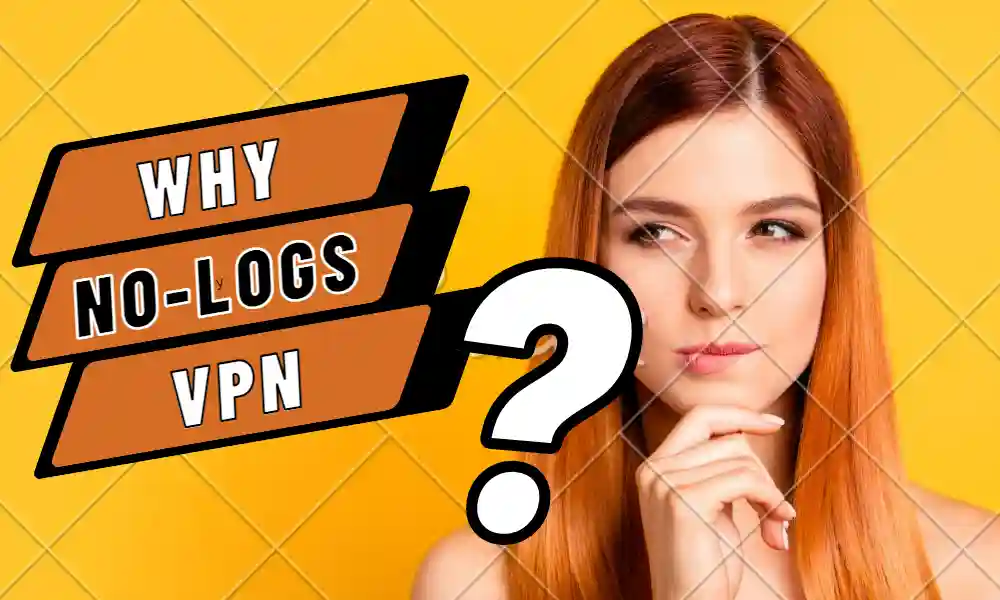
In the world of VPNs, where privacy and security are the name of the game, the terms “No-logs” or “Zero-logs” are thrown around like confetti at a parade. But what do these terms really mean? Fear not, as we’re about to dive deep into the wonderful realm of No-logs VPNs, unraveling the mystery while keeping things light-hearted and entertaining.
A No-logs or Zero-logs VPN is a VPN service that promises not to keep any records of your online activities, ensuring that your digital footprints remain as elusive as Bigfoot. In Layman’s terms, these VPNs vow not to be nosy neighbors who peek into your online life, and instead, they act as privacy bodyguards, making sure nobody gets to snoop around on your data.
Let’s break it down a little further, shall we? If you have no idea how a VPN works, read this article first. So, when you use a VPN, your internet traffic is encrypted and sent through a secure tunnel to a VPN server. This server then forwards your traffic to its final destination (websites, streaming platforms, etc.). In this process, a VPN provider could potentially log various types of data.
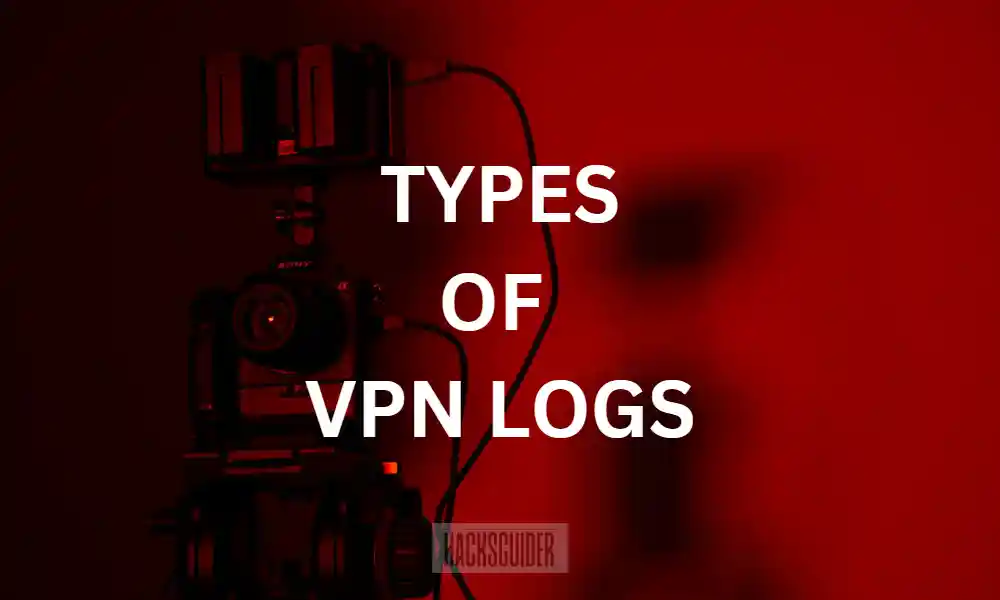
Connection logs: The timestamps of when you connect and disconnect from the VPN, the duration of your sessions, and the amount of data transferred.
IP addresses: Your original IP address and the IP address assigned by the VPN server. IP address
Browsing history: The websites you visit, the content you access, and your search queries.
Usage logs: Detailed information about your online activities, such as the files you download, the services you use, and any other data related to your VPN usage.
A No-logs or Zero-logs VPN boldly claims that it doesn’t store any of this information. It’s like the VPN equivalent of a secret agent with a license to protect, making sure your online escapades remain your little secret.
Now, you might be wondering, “Why is a No-logs VPN so important?” Well, dear reader, imagine a world where your VPN provider is more like a double agent, pretending to protect your privacy while secretly recording your every move. That’s precisely the scenario a No-logs VPN seeks to avoid.
By not storing any user logs, a No-logs VPN ensures that even if it receives a court order, subpoena, or any other legal request, it cannot provide any information about your online activities. It’s like having a safety deposit box that self-destructs as soon as someone tries to break in – nothing can be extracted because there’s simply nothing to extract.
However, it’s important to note that not all No-logs VPNs are created equal. Some might be stretching the truth like a rubber band, while others are as genuine as a heartfelt compliment from a dear friend (relax, no friend complements another). To determine the credibility of a No-logs VPN, it’s crucial to examine factors such as:
Jurisdiction: The country where the VPN provider is based can significantly impact its ability to maintain a true No-logs policy. Privacy-friendly jurisdictions with robust data protection laws are more conducive to ensuring a No-logs VPN can keep its promises.
Third-party audits: Independent audits conducted by reputable cybersecurity firms can verify whether a VPN provider truly adheres to a No-logs policy. These audits serve as a testament to the VPN’s commitment to keeping your data private and secure.
Transparency reports and warrant canaries: A VPN provider that issues regular transparency reports and maintains a warrant canary demonstrates its dedication to user privacy. These reports show how the VPN handles legal requests and indicate whether it has ever been compelled to disclose user data.
User reviews and community feedback: Satisfied customers and positive feedback from the VPN community can be a good indicator of a trustworthy No-logs VPN. However, always be cautious of fake reviews and paid endorsements.
Past experience with subpoenas and warrants: A VPN provider’s track record when dealing with subpoenas and warrants can shed light on its true No-logs policy. If a VPN has faced such situations in the past and successfully upheld its No-logs policy by providing no useful data to authorities, it demonstrates the provider’s commitment to user privacy.
Conversely, if a VPN has previously shared user data despite claiming a No-logs policy, it raises questions about the provider’s credibility and trustworthiness. Examining the provider’s history in this context can help users make informed decisions about the VPN’s commitment to privacy.
Parent Company- Moreover, it’s important to consider the implications of the VPN market being dominated by a few large companies like Nord Security, Kape Technologies, and Ziff Davis.
While these companies may have the resources to invest in better security and privacy features, it can also lead to potential monopolies and a lack of diversity in the market. This could stifle innovation and reduce the availability of alternative VPN options for consumers.
However, till now, we have never noticed anything of such suspicion and even Kape had transformed from an adware company to one of the biggest and most trustworthy VPN companies.
In conclusion, evaluating a VPN provider’s No-logs policy requires a comprehensive analysis of various factors, including jurisdiction, third-party audits, transparency reports, user reviews, and past experiences with subpoenas and warrants. By carefully considering these aspects, users can make informed decisions and select a VPN that genuinely protects their privacy and upholds its No-logs policy. Always remember that a VPN’s primary purpose is to safeguard your online privacy, and the right provider should be as dedicated to this mission as you are.
While many VPNs claim to prioritize user privacy, not all of them live up to their promises. Some VPNs have a poor track record when it comes to their log policies, putting users’ data and privacy at risk. Here, we take a look at some VPNs with the worst log policies.
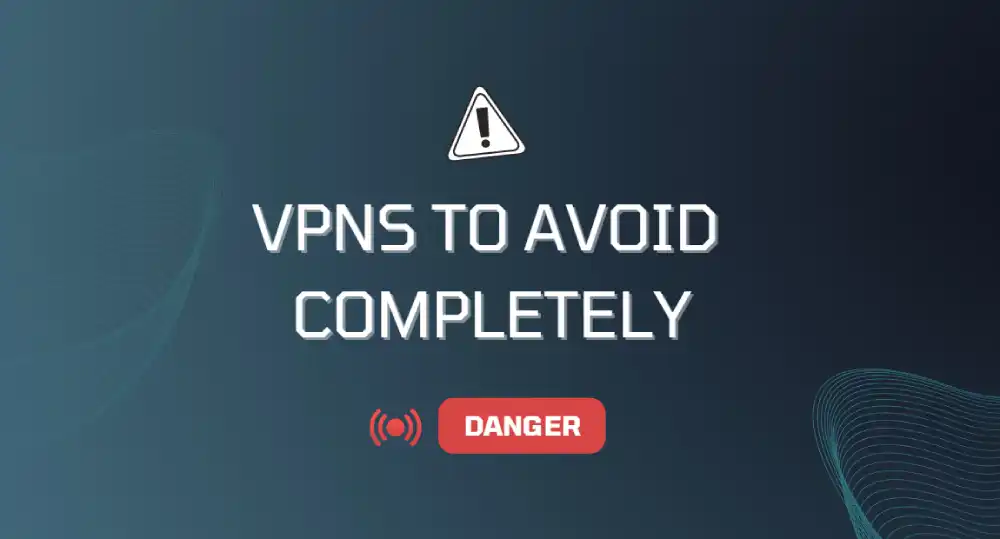
UFO VPN: UFO VPN’s privacy policy states that it does not log any user activity or data. However, in July 2020, a security breach exposed over 20 million users’ data, including email addresses, passwords, and IP addresses. This incident contradicted UFO VPN’s claims, revealing that the provider did store user data.
FAST VPN: FAST VPN claims to offer a No-logs policy, but their privacy policy is vague and confusing. It is unclear what data they collect and retain, making it difficult for users to trust their privacy policy.
Free VPN: Many free VPNs have poor log policies, often collecting user data and selling it to third parties for advertising purposes. Free VPN is no exception. It is crucial to be cautious when using free VPN services, as they may prioritize revenue generation over user privacy.
Super VPN: Super VPN’s privacy policy is ambiguous and unclear about the data it logs and retains. The provider claims not to keep any logs but does collect some user data for troubleshooting and service improvement purposes. This lack of transparency and clarity raises concerns about the true nature of their log policy and whether they genuinely prioritize user privacy.
Flash VPN: Flash VPN claims to have a No-logs policy, but their privacy policy reveals that they do collect and store some user data, including IP addresses, device information, and browsing history. This contradictory information casts doubt on the reliability of their No-logs claim.
When choosing a VPN, it’s crucial to carefully scrutinize the provider’s log policy, jurisdiction, and history of handling user data. Be cautious of vague or contradictory privacy policies and always prioritize VPNs with a proven track record of prioritizing user privacy and security.
Well, there are many VPNs known for exploiting users’ data. All the VPNs I mentioned in the worst choice are potential sources for leaking their user’s data. To be honest, all the free VPNs except Proton VPN, which by the way is not completely free, are other data vendors. How can you think that a VPN will build expensive servers, and other infrastructure, incur advertisement and marketing costs and then will provide you with the service for free?
The most amusing case was when IP Vanish claimed to be No-logs VPN, but when pressured by authorities, the logs came out. I don’t mean to say they should not have helped the authorities in solving crime, but why lie to people with false claims? A VPN should be completely transparent and thus at least have the courage to claim the reality instead of falsely lying to grab users’ money and trust.
Some other VPNs that are included in this list are HideMyAss (HMA) and PureVPN. These VPNs also marketed themselves as No-logs VPNs, however, when put to test, both of them put their users under the rails.
Here’s where it gets interesting. VPN providers are not legally obligated to keep logs. But wait! Before you start tossing confetti and celebrating, there’s a catch. Some countries have data retention laws that require VPN providers to store user data for a certain period. This can vary greatly from one jurisdiction to another, so it’s crucial to know where your VPN provider is based.
On the flip side, many VPN providers operate in countries with privacy-friendly laws, allowing them to adopt a strict no-logs policy. These VPNs are the superheroes of the digital world, keeping your secrets safe and sound.
By not storing any records of your online activities, these VPNs ensure that even if they receive a legal request for your data, they’ll have nothing to hand over. That’s some top-notch digital peace of mind!
So, in a nutshell, VPNs are not inherently required to keep logs. However, depending on their jurisdiction, they might have to play by the rules and store user data. Your best bet is to opt for a reputable no-logs VPN, so you can surf the web like a stealthy ninja, leaving no trace behind.
Think of your ISP as the all-seeing eye of your digital life, constantly observing your online activities. But worry not, we’re here to spill the beans, sprinkle some humor, and simplify the whole shebang for you.
Your ISP is like a digital librarian who diligently keeps a record of every book (read: website) you’ve ever borrowed. These logs can include your browsing history, connection times, and even the amount of data you’ve used. And just like your overly curious neighbor, ISPs might be required to share this information with government agencies or other third parties. Yikes!
While VPNs can often adopt a no-logs policy, ISPs don’t have it quite so easy. In many countries, ISPs are legally required to retain user data for a certain period, which can range from a few months to a couple of years. So, even if your ISP wanted to keep your logs under lock and key, they might not have a choice in the matter.
Fear not, dear reader! All hope is not lost. By using a no-logs VPN, you can create a secure, encrypted tunnel between your device and the VPN server. This means that your ISP will only see a bunch of scrambled, unintelligible data instead of your actual online activities. It’s like sending your ISP on a wild goose chase, leaving them clueless about your digital escapades.
Ready for a byte-sized truth bomb? Using a no-logs VPN can significantly boost your online privacy, but achieving complete anonymity on the internet is a whole other ballgame. If a VPN could make you completely anonymous, why don’t all the shady people use it to hide their dirty deeds, this is because it is not as simple as it sounds.
Let’s shed some light on this common misconception.
A no-logs VPN is like a digital invisibility cloak, masking your IP address and encrypting your online activities. This makes it much harder for third parties, including your ISP, to track your virtual footsteps. However, it’s important to remember that a VPN is just one piece of the online privacy puzzle.
While no-logs VPNs offer robust privacy protection, true online anonymity is tricky to achieve. Here’s why:
Browser Fingerprinting: Websites can use sophisticated tracking techniques to identify your device based on its unique combination of settings and characteristics. Even with a VPN, this sneaky method can still reveal your identity.
Cookies: These digital crumbs can cling to your device and reveal your browsing habits, despite using a VPN. Regularly clearing your cookies can help maintain your privacy.
Human Error: Accidentally using your real name, logging into personal accounts, or disclosing sensitive information can compromise your anonymity, even with a no-logs VPN.
To sum it up, a no-logs VPN can considerably enhance your online privacy, but it can’t make you 100% anonymous. Don’t get disheartened, though! By combining a reliable no-logs VPN with safe browsing practices, you can greatly reduce your digital footprint and enjoy a more secure internet experience.

Best iPhone VPNs for iOS in 2023: Safe VPNs We review VPNs and other products independently. However, if you buy
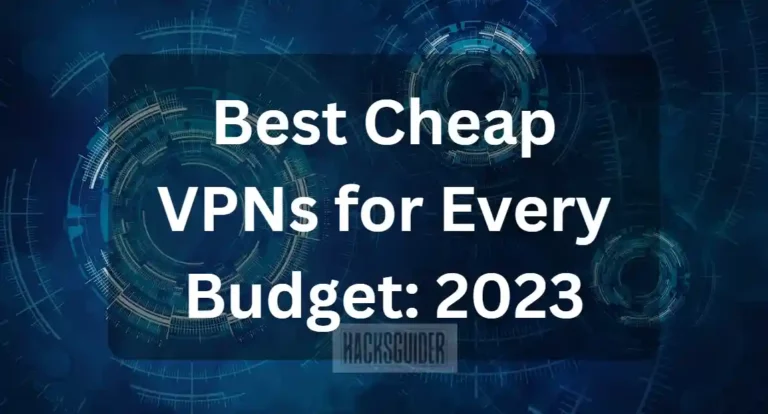
Best Cheap VPNs In 2023: Premium VPNs at amazing prices We review VPNs and other products independently. However, if you
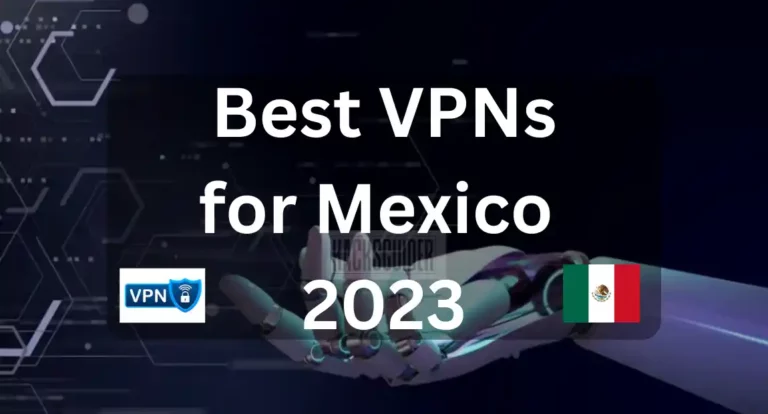
Best VPNs for Mexico in 2023: Free and Premium We review VPNs and other products independently. However, if you buy
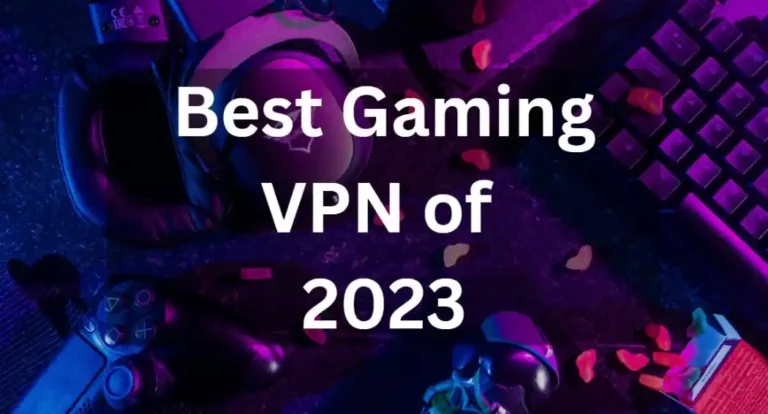
Best Free And Premium Gaming VPNs of 2023 We review VPNs and other products independently. However, if you buy with

Fastest VPNs To Buy In 2023: Tested And Verified We review VPNs and other products independently. However, if you buy
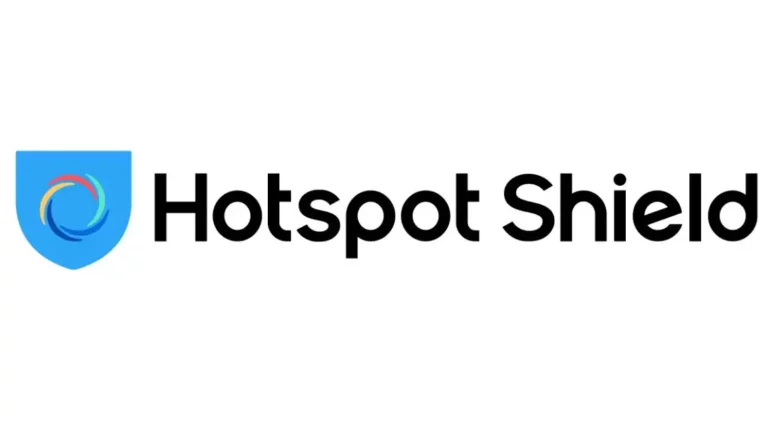
Hotspot Shield VPN 2023: Complete Review (Free and Premium) We review VPNs and other products independently. However, if you buy
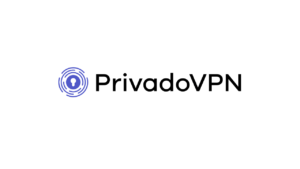
We review VPNs and other products independently. However, if you buy with our links, we may earn a small commission to run tests and services.
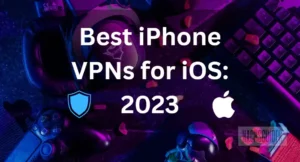
Best iPhone VPNs for iOS in 2023: Safe VPNs We review VPNs and other products independently. However, if you buy with our links, we may

Best Cheap VPNs In 2023: Premium VPNs at amazing prices We review VPNs and other products independently. However, if you buy with our links, we

Best VPNs for Mexico in 2023: Free and Premium We review VPNs and other products independently. However, if you buy with our links, we may

Best Free And Premium Gaming VPNs of 2023 We review VPNs and other products independently. However, if you buy with our links, we may earn

Fastest VPNs To Buy In 2023: Tested And Verified We review VPNs and other products independently. However, if you buy with our links, we may
